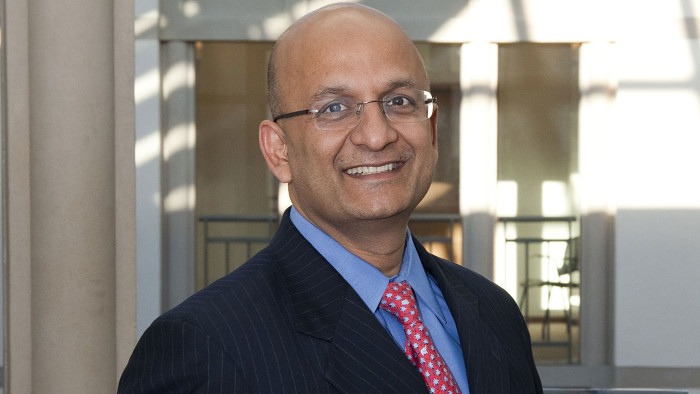Prime example

Simply sign up to the Business education myFT Digest -- delivered directly to your inbox.
Nitin Nohria does not take the responsibility of being the 10th dean of Harvard Business School lightly, and with good cause. For whatever US business school deans may say to the contrary, it is to Harvard they look for leadership when the industry is in flux.
And at a time when the value of an MBA is in question like never before, there is one message coming loud and clear from HBS: the need to educate more globally aware managers. Prof Nohria, HBS’s first dean born outside North America, has spent his first two years in the job extending its reach – from its traditional role as the business school that educates the boardrooms of America, to one that recognises a more nuanced role on the international stage.
Global awareness is key for MBA graduates, says Prof Nohria. “They are going to enter a world where opportunity will be all around the world.”
This acknowledgment is one of the factors that have helped Harvard regain the number one slot in the Financial Times Global MBA ranking for the first time in eight years and for the fourth time in the 15 years of the rankings.
At the heart of the dean’s plans is a global immersion programme called Field, in which first-year MBA students work in teams on projects for partner companies, be they multinationals or entrepreneurial start-ups. After working for 10 weeks on their projects in Boston, students travel to their project country for nine days.
“The goals are not that we expect them to become experts on those countries, but to understand how hard it is to anticipate what this market will be like,” explains Prof Nohria.
When they reach the country, they realise straight away that things are not what they expected, he says. “Immediately they have to have a huge dose of humility.”
The projects are going well, he says. “In the first year we got it 60-70 per cent right.” With 139 out of the 140 participating companies signing up to take part for a second year – not to mention the added bonuses in developing recruitment and speaker links with the companies – most deans would classify that as a rip-roaring success.
But Prof Nohria has loftier goals: to create pedagogy around these projects.
He is the first to acknowledge that HBS did not create overseas consulting projects. “A lot of people do experiential exercises and a lot have done global immersions.” But then, Harvard was not the first university to write case studies either, he points out.
What Harvard did was develop the case method, a formula for writing cases backed up with teaching support. And Prof Nohria now sees HBS’s role in 2013 as helping to define a process for conducting global immersion programmes – in the same way as it did for case studies nearly a century ago.
“We are creating a clear loop in which we are better-defining pedagogical outcomes,” he says.
“We’re still in the early stages of developing the method.”
The new course is just one of the changes at Harvard this year, some of which have been instigated by the dean and others that reflect the market. For example, there has been an increase in the number of science and technology students that have applied to HBS this year, and those graduating have often sought their first job in smaller, more entrepreneurial companies rather the traditional powerhouse recruiters such as McKinsey or Goldman Sachs.
But some things will not change. The two-year MBA model will remain the gold standard at HBS, even though Prof Nohria realises that “the industry has started to lose confidence in the two-year model”.
He sees the challenge for the school, therefore, as justifying the return on investment for its students, who can often be $100,000 in debt on graduation.
Prof Nohria acknowledges the attraction of the latest online courses – “online is appealing to students that would [otherwise] come to us …It is an inevitable part of the future” – but says it will be used to complement existing courses at HBS, not replace them.
Indeed, for many business school deans, advances in technology, globalisation and changes in corporate recruiting mean that this is a watershed moment in the history of business education.
None of this discourages Prof Nohria: “It’s a time to set our own course.”
Comments